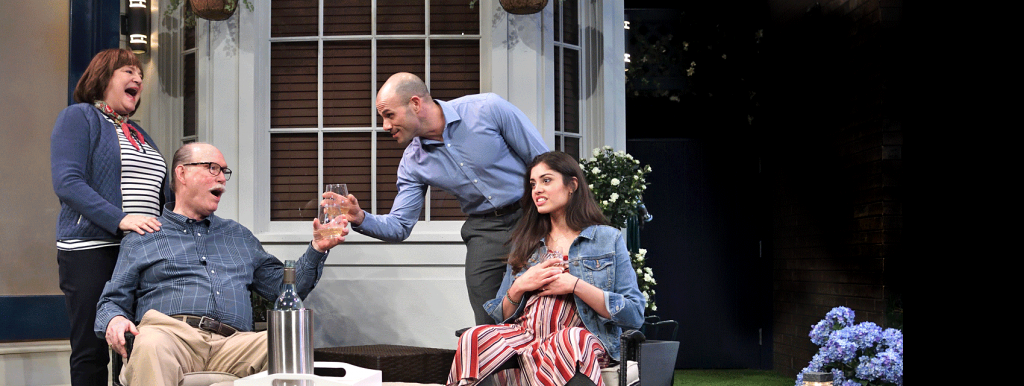by Dr. Michelle Cruz
“Last night in Kabul, the United States ended 20 years of war in Afghanistan — the longest war in American history.” – President Joe Biden, August 31, 2021
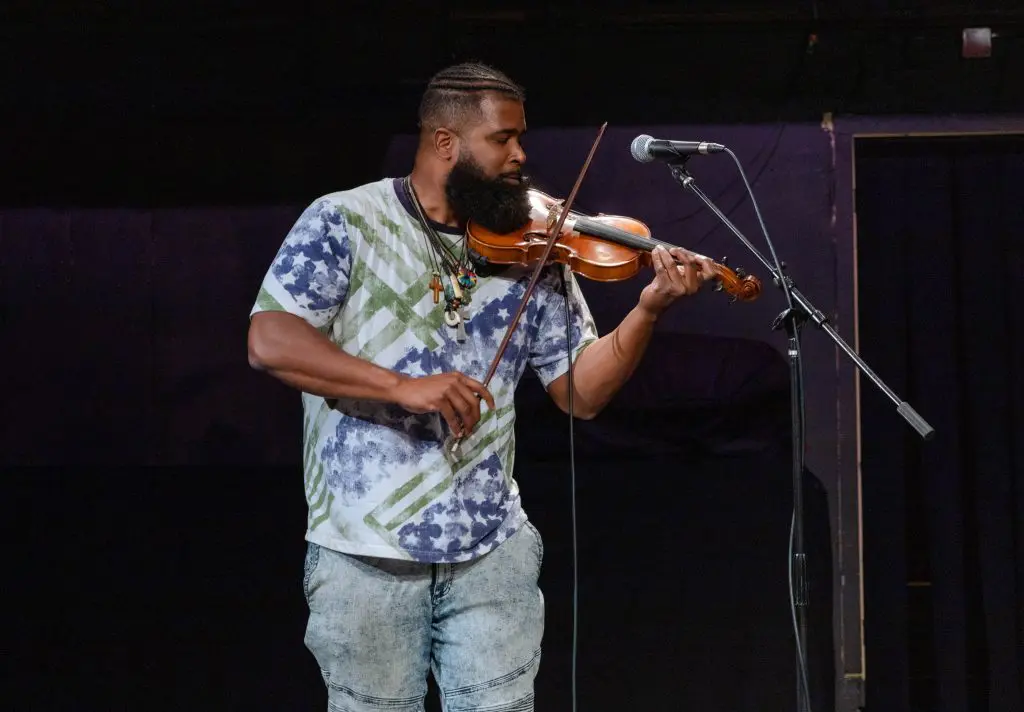
As the world watched President Biden’s remarks from the White House’s State Dining Room that day, I couldn’t help but think about how long both of the wars in Iraq and Afghanistan had gone on, who had been affected on all sides of the conflict, and all of the people we lost. What would be the legacy of our Global War on Terror?
At the time, I was the director of community engagement at Trinity Rep. I began working with veterans in the community through programs I started, like Veteran Voices and The Green Light Ghost Light Project. I listened to the stories from Dr. Mark Santow’s Providence Clemente Veterans’ Initiative participants, who spoke of things like moral injury, PTSD, and what they left behind in war. I heard musician and West Point graduate Kevin “Big Lux” Lowther perform his song, “Chasing Bombs,” in front of a transfixed room of teens at Trinity Rep’s Young Actors Summer Institute (YASI). I saw audiences’ hunger for some understanding of these wars, wars that began before some of them were even born. People of all ages and backgrounds seemed to have questions, but many were too afraid to ask.
I thought of the brilliant play Boots the Ground, which had its world premiere at Trinity Repertory Company in 2006. Penned by playwright-in-residence Deborah Salem Smith and co-created with former Associate Artistic Director Laura Kepley, Boots on the Ground told the story of Rhode Islanders impacted by the War in Iraq and was crafted from interviews of nearly 70 soldiers and their families, medical workers, journalists, ministers, and others.
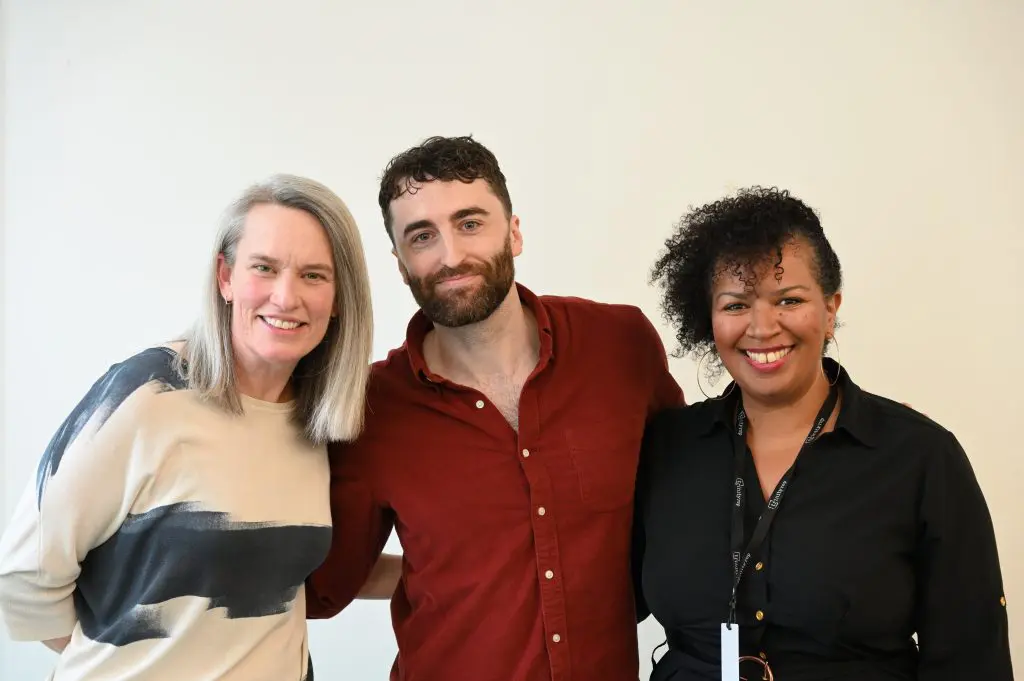
I wondered if we could revisit these conversations and speak to a new generation of voices from these wars nearly 20 years later. Curt Columbus leapt at this idea, and soon, we contacted both Smith and Kepley to see if this idea could come to fruition. Although Kepley was excited about the prospect, she no longer lived in Rhode Island and could not participate due to her directing commitments. Smith then reached out to Trinity Rep resident company member Charlie Thurston, who audiences may primarily know as an actor. But many may not know that Thurston is also an accomplished playwright. He and Smith had already teamed up to write Radical, an award-winning play currently in development.
Smith also recommended that I remain part of the co-creator team. Our shared impulse was that this new play would both be a vital theatrical experience and a way to connect our audiences to local community organizations.
At first, the project intended to hold stories from both of the wars in Afghanistan and Iraq. But soon we discovered that each war had of course, its own specificities. We decided that the best way forward was to re-visit the war in Iraq, a country where we still have our boots on the ground.
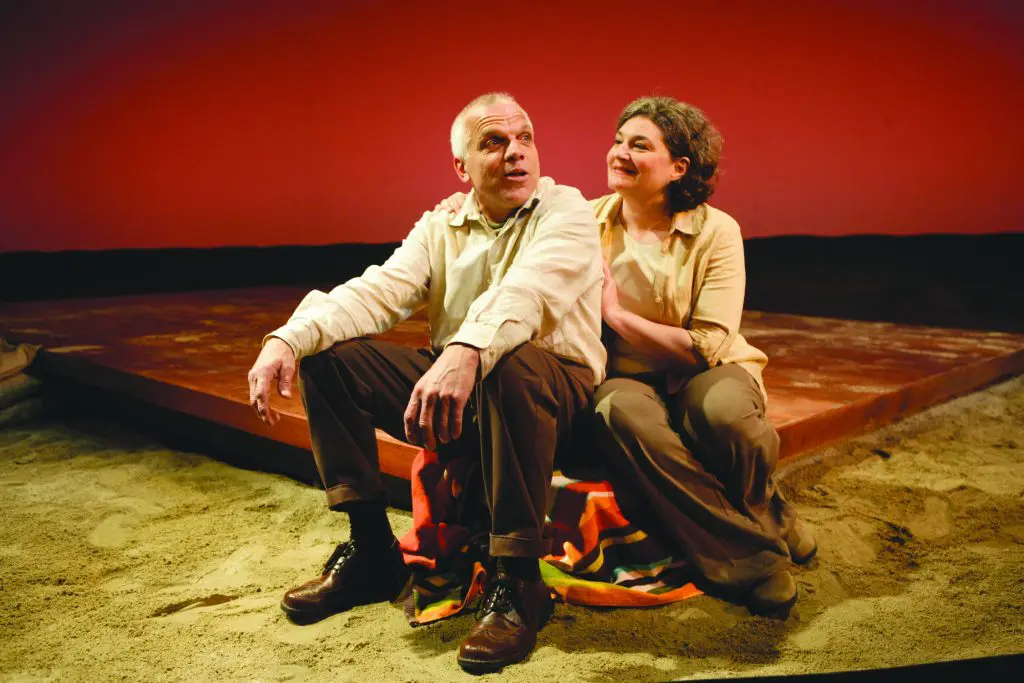
The three of us set out to listen. We interviewed a wide variety of veterans, a Gold Star family, thought leaders, academics, re-visited a faith leader who had the final words in the original Boots on The Ground, as well as talked to friends of those affected by the war.
The war also internally displaced an estimated 9.2 million Iraqis, and more than 164,000 Iraqis have relocated to the US.. It soon became clear that it was essential to interview Iraqis whose lives were also profoundly changed by the invasion – something that was not portrayed in the original production of Boots on the Ground.
We hoped to include a range of perspectives and stories for a deeper understanding of the ways that war impacts our shared community in the short and long term. The interview process led the team to many local voices, crossing the state from Coventry to Newport, and outward to voices from across the country and the world.
“Every interview was informative and memorable,” Thurston said. “Every interviewee was brave and generous.” We are so grateful to everyone who took the time to share their story with us.”
When Thurston and Smith looked at all of the collected material and interviews, they knew their task in writing the play would allow real voices to reveal how our country’s global actions influenced individuals’ true, personal stories.
“This play is a unique and rare record as it tells the stories from multiple perspectives, revealing the common struggle to survive, to mourn, to heal, to rebuild a sense of home,” Smith said. “Each life swept up in the conflict tries to persevere over days, years, and now decades.”
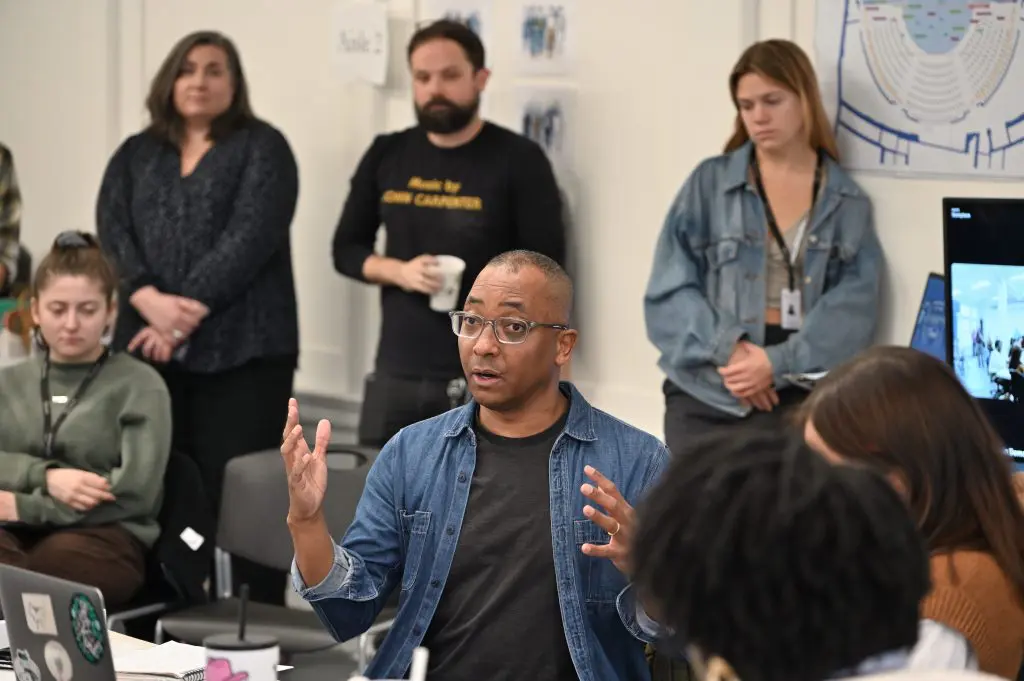
Having Christopher Windom, last seen at Trinity Rep as the director of August Wilson’s Fences, join Someone Will Remember Us as director is so special. He has a long history with Trinity Rep and brings unique skills as an experienced director, choreographer, and community-builder. He understood the production, its unique nuances, and what it could mean for the community.
“The stories we have to tell, the journeys of these peoples’ lives, are so delicately interwoven,” Windom said. “It’s like a blanket of humanity that I hope will bring closeness and comfort to those who come to see our production.”
